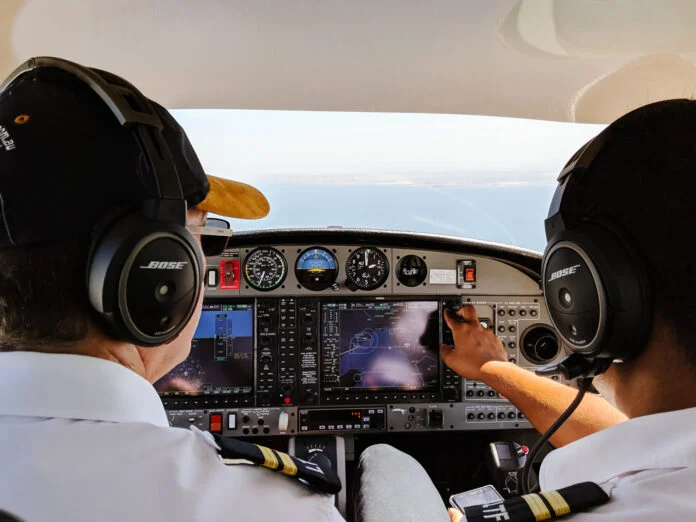Many people are fascinated by the world of aviation. It offers exciting adventures, glamour, and the thrill of solving challenging problems.
With the aviation industry growing, there are more opportunities for aspiring pilots to pursue their dreams of flying.
This guide provides helpful advice and practical tips for starting a career in aviation and becoming a pilot.
6 Top Success Tips for the Next Generation of Pilots
To make it as a pilot, you must put in the time and effort and think strategically about your training and career advancement.
If you’re hoping to make it as a pilot, consider these suggestions:
1. Getting Ready for the Journey
Becoming a pilot can be achieved through different routes, such as attending flight schools, pursuing aviation degree programs, obtaining a diploma of aviation, or getting your pilot licence. It’s important to thoroughly research each option before deciding because they all have advantages and disadvantages.
Personal qualities and skills like discipline, problem-solving abilities, and communication skills are important for success in this field. In the field of aviation, professionals need to have certain skills. These include making quick and well-informed decisions, remaining calm in stressful situations, and working effectively as a team.
2. Starting Out
Getting a private pilot licence is the initial stage in starting an aviation career. To become a pilot, you need to go through a few steps. First, you have to pass a medical examination. Then, you have to complete a certain number of flight training hours. Finally, you must show that you are skilled by passing written and practical exams. It is important to gain experience and build flight hours by participating in different types of flying, such as cross-country flights and night operations. This will help develop skills and progress in your aviation career.
Deciding on the right flight school or training program is a big choice. There are a few things to think about when making a decision. These include the reputation of the option, how much it will cost, where it is located, and what resources are available. To make a good and well-informed decision, it is important to research, compare, and visit different schools.
3. Improving Your Professional Growth
Different levels of pilot certifications and licences are designed to match specific career goals. For example, getting an instrument rating helps pilots fly in different weather conditions, while a commercial pilot licence lets them get paid for flying. The diploma of aviation program in flight schools is highly regarded and covers advanced topics like aircraft systems and performance. It leads to the prestigious airline transport pilot licence.
Specialised roles such as flight instructors, airline pilots, or corporate pilots may require extra training. To succeed in the competitive job market, it’s important to create a strong flight resume, connect with people in the aviation industry, and actively search for job openings.
4. Overcoming Difficulties
Becoming a pilot can be difficult due to financial constraints, competition, and the need for continuous learning.
Here are some ways to handle these challenges:
● Apply for scholarships or grants.
● Look for part-time jobs in the aviation industry.
● Take advantage of mentorships and internships.
Facing challenges and experiencing failures are bound to happen, but they can be overcome by staying determined and resilient and keeping a clear vision of your goals. Always remember the excitement and rewards that come with an aviation career.
5. Adapting to the professional aviation environment
Moving from being a student pilot to becoming a professional aviator means adjusting to the specific requirements and difficulties of the job. This means accepting stricter rules, conducting thorough inspections, and adjusting to the business aspects of aviation.
As a professional pilot, it is extremely important to follow the rules set by federal and international aviation authorities. Following rules, procedures, and guidelines is important for smooth operations and maintaining safety standards in the industry. It is important to stay updated on regulatory changes and industry developments.
6. Creating a Network within the Aviation Industry
Creating a strong network and fostering a community within the aviation industry is valuable for career advancement and personal growth. To make progress as an aviator, joining aviation communities, attending industry events, and connecting with other pilots and professionals can be helpful.
Events in the aviation industry, like conferences, trade shows, and airshows, are great chances to connect with professionals and enthusiasts. Talking to experts, joining discussions, and hearing about others’ experiences can give you valuable insights and motivation to grow as a pilot.
Having a mentor or collaborator in the aviation community can also greatly help you grow professionally and personally.
A Final Word
Becoming a pilot can change your life but requires dedication, effort, and careful planning. Remember that every experienced pilot has to begin somewhere.
Keep your determination and excitement for the upcoming journey.
You can definitely achieve your goal of becoming a pilot. Believe in yourself and take the plunge!

